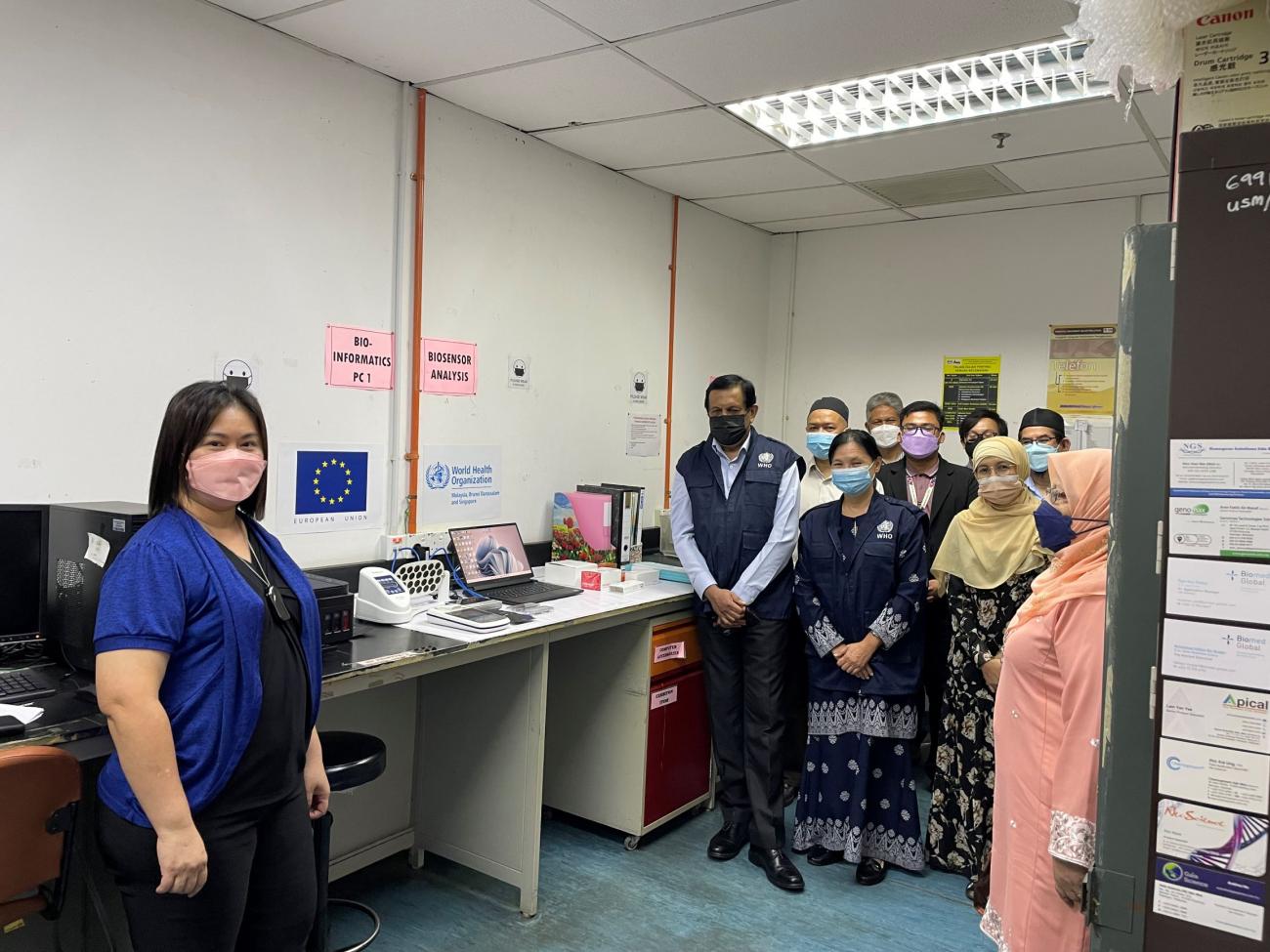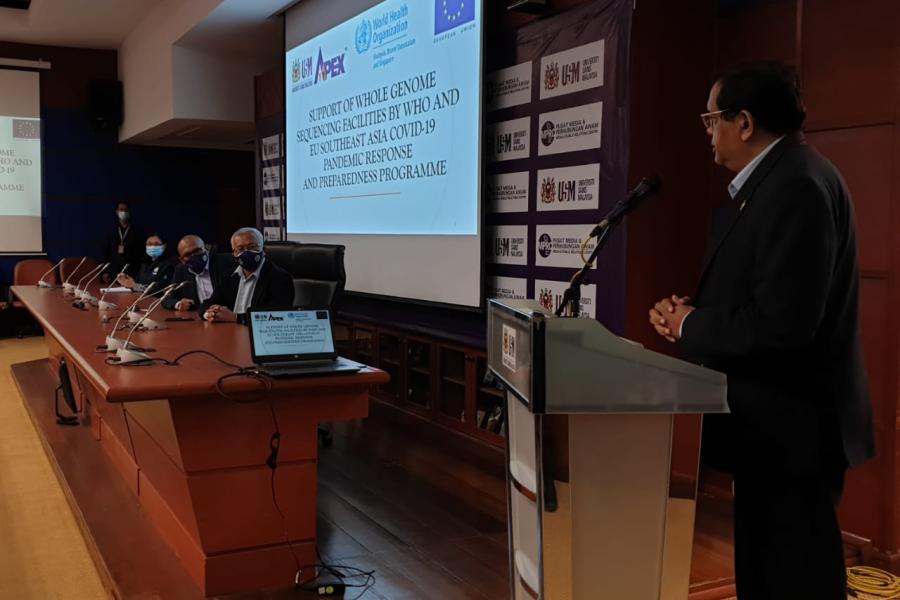WHO supports strengthening of whole genome sequencing capacity at Universiti Sains Malaysia in Kelantan State

WHO Representative to Malaysia, Brunei Darussalam and Singapore, Dr Rabindra Abeyasinghe, visited Universiti Sains Malaysia (USM) in Kelantan on 27 June 2022
Read the original article here
WHO Representative to Malaysia, Brunei Darussalam and Singapore, Dr Rabindra Abeyasinghe, visited the Universiti Sains Malaysia (USM) in Kelantan on 27 June 2022 to meet the university's leaders and faculty members to discuss progress in ongoing collaborations to strengthen WGS capacity, and explore potential future collaborations.
Welcoming Dr Rabindra and WHO colleagues at the USM Minden campus in the capital Kota Bharu was USM Vice-Chancellor, Prof Dato' Dr Faisal Rafiq Mahamd Adikan, joined by the university's senior management and over 40 faculty members from USM's School of Medical Sciences.

In his remarks, Dr Rabindra conveyed his appreciation for USM's work in whole-genome sequencing. With the financial support from the European Union's South-East Asia Pandemic Response and Preparedness project, WHO has provided the laboratory of USM Hospital (HUSM) with equipment and supplies that has contributed to making HUSM the referral laboratory for whole-genome sequencing (WGS) in the entire Northeastern part of peninsular Malaysia.
WGS is vital to keep track of the constant evolution of viral variants of the SARS CoV-2 virus an increasingly important aspect of monitoring the spread of COVID-19 in the community, assessing the usefulness of diagnostic tests and therapeutics including vaccines for responding to the disease. WHO support allowed the laboratory to improve its testing capacity and contribute to a better understanding of the variants of SARS-CoV-2 virus, circulating in Kelantan state.
The equipment provided with financial support from the European Union includes a WGS device using the Oxford Nanopore Technology (ONT), a new generation of sensing technology to perform precise molecular analyses.
"At the beginning of the COVID-19 pandemic, we were challenged to understand the pathogen causing the disease, its transmission and the required clinical management. As the pandemic evolved, we needed to establish the capacity to identify the virus variants, the epidemiological consequences of viral variants and the impact on preventive and therapeutic measures" said Dr Rabindra.
"WGS is a very strong tool to integrate to our pandemic response. Given the way virus spreads, the capacity needs to be widely available across states and country, allowing an early access and information of the evolving virus," Dr Rabindra emphasized.
Kelantan holds an important position in detecting early transmission from outside Malaysia as it borders with Thailand.
"With the technical cooperation from WHO and financial support from the EU, the WGS testing capacity in HUSM laboratory has expanded, contributing to a better understanding of the variants of the SARS-CoV-2 virus spread in the state of Kelantan in particular and the rest of Malaysia in general," said Vice-Chancellor Prof Dato' Dr Faisal Rafiq Mahamd Adikan.
"Having the expanded laboratory capacity to carry out whole genome sequencing (WGS) is a timely measure to help prepare the country to better respond to COVID-19 pandemic and increase preparedness to deal with possible future outbreaks," added Prof Faisal Rafiq.
Although provided as part of pandemic response support this capacity is expected to strengthen routine healthcare provision and future pandemic preparedness in the state. The new HUSM's WGS capacity can also be used to develop an alert system and response to other transmitting diseases such as monkeypox, and other re-emerging and emerging diseases.
"I take this opportunity to compliment Malaysia for how it responded to the pandemic, taking proactive measures in its response to the pandemic, such as implementing mobility restrictions, providing universal access to COVID-19 vaccination, and reducing the number of deaths," said Dr Rabindra.
He emphasized the need for Malaysia to continue its calibrated and careful responses as the virus continues to evolve.
"The pandemic is not yet over. It is imperative that we continue to build our capacity both on understanding the virus, developing more effective live-saving therapeutics, and maintaining the protective measures including vaccination and public health and social measures," urged Dr Rabindra.
WHO has been supported by the European Union which provided EURO 20 million grant to support pandemic response and prepare countries in Southeast Asia, including Malaysia, for future pandemics.



